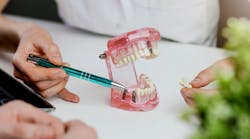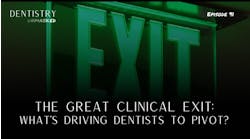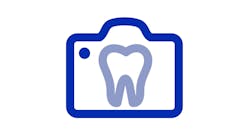If you are a dentist who attributes 20% or more of your revenue to implants and over $1.5M in total revenue, you have one of the most valuable practices in America today. This was not the case a year ago.
More "Practice Sales Today":
- Then and now: Who will buy your dental practice?
- 2023 market update: Finding the rhythm
- Hello! May I buy your dental practice?
Looking back
Twenty years ago, when the consolidation of the dental industry was in its infancy, almost all investors were focused on buying general practices. They were plentiful, in great locations, and each year many new dentists graduated from school to join these practices as associates. Additionally, GP practices had recurring revenue through their hygiene department. Hygiene regularly represented 20%+ of revenue. It helped de-risk the cashflows and the dependency on the dentist. The combination of a recurring revenue aspect and de-risked cash flows (the less risky the cash flows, the more valuable a business) proved to be highly attractive for investors, leading them to begin buying GP dental practices. Soon, the buyers were everywhere. Many great businesses had already sold and it became harder to get a return on investment due to rising valuations (more demand + less supply = higher prices).
A move to specialty dentistry
Soon, savvy investors began looking to alternatives in dental investing. This led them to begin to build DSOs in pediatrics, orthodontics, and recently, oral surgery and endodontics. At one time, these specialties were considered too risky to invest in due to the key-man risk. Specialty practices are, in many cases, heavily dependent on referrals from other providers, and if the specialist were to exit, those referrals could dry up. Investors slowly got comfortable with this key-man risk through postsale employment obligations, and the race was on.
In the last three years, oral surgery and endodontic practices, once completely ignored by DSOs, became some of the most sought-after businesses. As a result, they traded at some of the highest multiples we have ever seen. Consolidation in the specialty space has been swift—it is estimated the orthodontic, oral surgery, and endodontic practices are more consolidated than GP practices today. Before this wave occurred, we know of many specialists who simply locked their doors and walked away from their businesses at the end of their careers. But in the last three years, the specialists that we have worked with have received 300% to 500% of collections for their business.
Investors flocked to Facebook when it was hot, then to Tesla, and do you remember the pop in the shares of Zoom during the pandemic? Now investors are looking for ways to capitalize on the giant strides in artificial intelligence (AI).
Implant dentistry: The next big thing
In recent months, investors have begun to discover the value of practices focused on implant dentistry. Private equity (PE) groups and newly formed IDSOs/DSOs began calling our offices in Q3 of 2022. They expressed an interest in any implant-specific business and any practices that have at least 20% of their revenue attributable to implants. There are new buyers each week looking to invest in these businesses, and they are all willing to pay a premium to enter the market. Since late last year, implant-focused practices have sold well above the average GP practice, and we anticipate that to continue well through 2024.
Don't wait until it's too late
Implant-driven businesses are receiving some of the highest valuations we have ever seen at TUSK. While there is still time to act on this valuation hike, the clock is ticking, and you do not want to wait until it’s too late. One of the most important, easiest things a dental practice owner can do is find out the true value of their business. We talk with hundreds of doctors every year and conduct a complimentary no-obligation practice valuation for their business. Our team can provide insight on how your overall practice value could be impacted in a sale if you choose to act sooner rather than later. We would be happy to do the same for you. It’s a quick and easy process that lets you know where you are when it comes to the health and future of your dental practice.
Editor's notes:
This article appeared in the August 2023 print edition of Dental Economics magazine. Dentists in North America are eligible for a complimentary print subscription. Sign up here.
TUSK is a recent financial supporter of Dental Economics.







